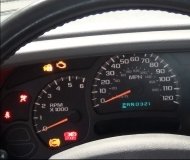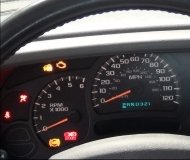I overlooked that part of your post, but there really isn't a good answer for the reliability issue. As one very good car manufacturer's trainer used to say, "we not only provide replacement parts to our dealers, we often provide them pre-broken to save time". There are many cases where the aftermarket parts suppliers do a real good job of addressing the common failures of some parts. The manufacturers squeeze their parts suppliers to cut costs even when it means reducing reliability the lowest acceptable level. Saving a nickel on the cost of a five-dollar signal switch can translate into saving a million dollars a year on the assembly lines. To save that nickel, the contacts have to be smaller, the plastic has to be thinner, or some other aspect has to be cheapened. When a part costs the manufacturer a nickel more, by the time it runs through every stage of getting it to the dealer's parts department and the consumer, it will cost sixty dollars instead of fifty-five dollars.
Aftermarket suppliers have fewer people taking a bite out of the cost of producing that product, so adding a nickel to the cost of manufacturing it might add only fifty cents to the retail price. To say it a different way, they can greatly increase the reliability of a part with relatively little increased cost. GM front-wheel-drive wheel bearings are a good example. You'll pay less for an aftermarket replacement, and if you have anti-lock brakes, they'll last longer than the typical 15,000 miles of the factory part.
There are also cases where aftermarket suppliers aren't aware of certain details and a part may not perform properly in some applications. In the case of GM, they build about 80 percent of their own parts, and buy about 20 percent. Of those they build themselves, they aren't about to share the details with a competitor. Sensors are a perfect example. There's no way to know how the circuitry was designed so the best that can be done is to design a new circuit that does the same thing, ... And hope you get it right.
Chrysler buys about 80 percent of their parts, and only makes about 20 percent. Because an outside vendor is making those parts, they can make more exactly the same and sell them to other retailers. A fuel pump is a good example. If you ever stand next to a GM truck with the engine running, you'll easily hear the fuel pump buzzing away. Chrysler pumps are built to very tight tolerances to make them quiet. The disadvantage to that is the impellers can become plugged with microscopic debris and lock them up. If you install a NAPA pump, the same thing will happen within a few weeks. Same for the second, third, and fourth pump. Out of frustration, you go to the dealer and buy one of their pumps, for a higher cost, and have no more problems. The assumption is you should only use a factory part.
In reality, NAPA fuel pumps for Chrysler products come from the same supplier that sells them to Chrysler. The real solution was to get rid of the debris in the tank, and that could mean having it steam-cleaned at a radiator repair shop. At that point any aftermarket pump will work just fine. In practice, that debris got collected in the first three or four pumps, and was gone by the time the dealer's pump was installed. At issue wasn't where the pump came from, but that would be the logical conclusion.
Those are the reasons it's hard to answer your question properly. Here and there we read about one aftermarket part manufacturer having a problem with one of their parts on just a specific model, or engine size, or year, while there is no problem with the dealer's part. In the case of your mass air flow sensor, since the circuitry is sealed and can't be copied, it is conceivable an aftermarket one might not perform properly on your engine, but the manufacturer most likely has had enough success in general that they will keep on selling them. If enough people return them multiple times, that will tell them they have a problem with their design and it needs to be changed, but that usually happens pretty quickly. The people at the auto parts stores will usually know when a part is not performing properly, either from experience with returns, or a service bulletin from the supplier of that part or from the head office. They often have the same part from a different supplier and will try to steer you toward that one.
Friday, May 9th, 2014 AT 2:06 PM



